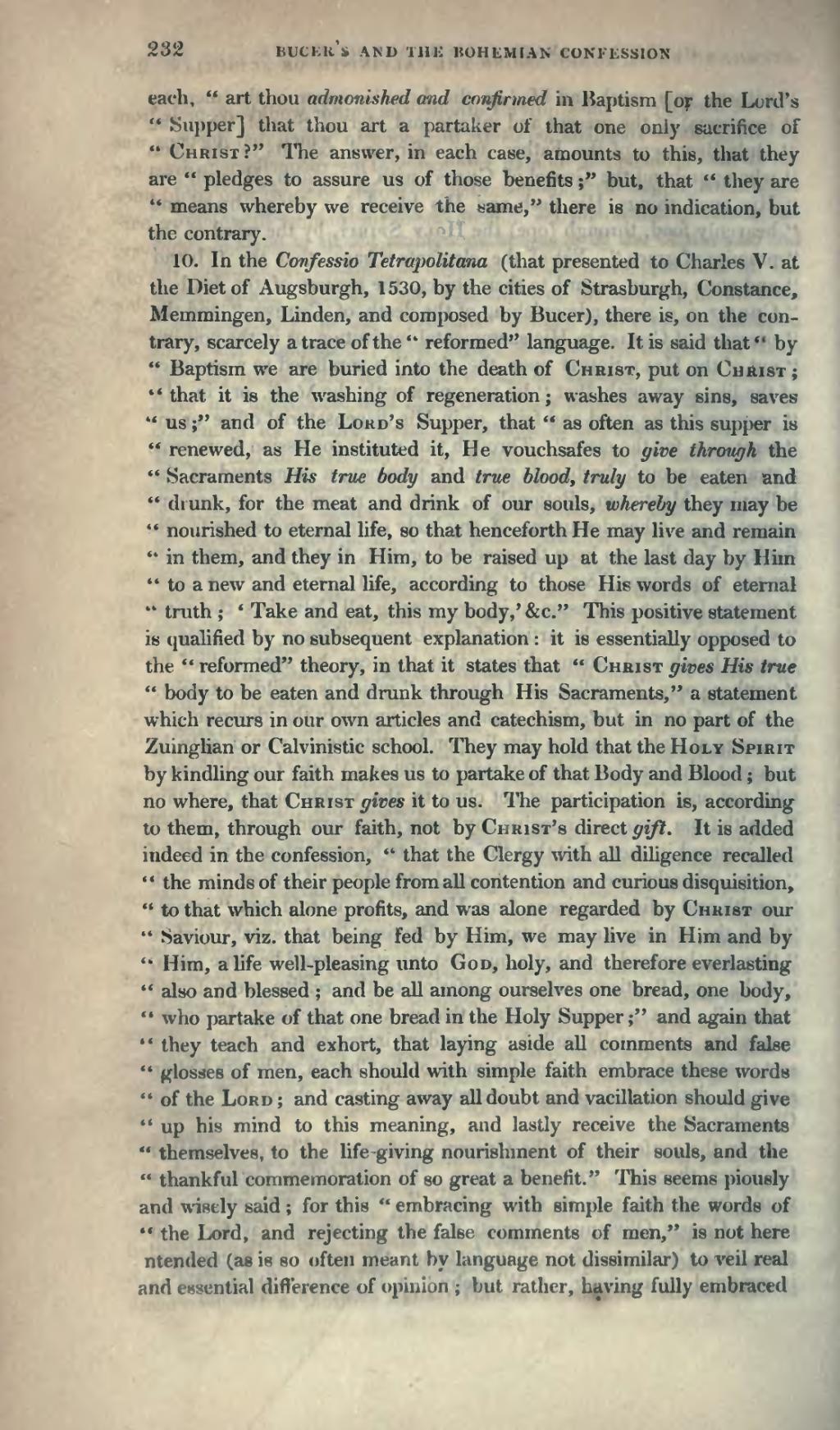each, "art thou admonished and confirmed in Baptism [or the Lord's Supper] that thou art a partaker of that one only sacrifice of Christ?" The answer, in each case, amounts to this, that they are "pledges to assure us of those benefits;" but, that "they are means whereby we receive the same," there is no indication, but the contrary.
10. In the Confessio Tetrapolitana (that presented to Charles V. at the Diet of Augsburgh, 1530, by the cities of Strasburgh, Constance, Memmingen, Linden, and composed by Bucer), there is, on the contrary, scarcely a trace of the "reformed" language. It is said that "by Baptism we are buried into the death of Christ, put on Christ; that it is the washing of regeneration; washes away sins, saves us;" and of the Lord's Supper, that "as often as this supper is renewed, as He instituted it. He vouchsafes to give through the Sacraments His true body and true blood, truly to be eaten and drunk, for the meat and drink of our souls, whereby they may be nourished to eternal life, so that henceforth He may live and remain in them, and they in Him, to be raised up at the last day by Him to a new and eternal life, according to those His words of eternal truth; 'Take and eat, this my body,' &c." This positive statement is qualified by no subsequent explanation: it is essentially opposed to the "reformed" theory, in that it states that Christ gives His true body to be eaten and drunk through His Sacraments," a statement which recurs in our own articles and catechism, but in no part of the Zuinglian or Calvinistic school. They may hold that the Holy Spirit by kindling our faith makes us to partake of that Body and Blood; but no where, that Christ gives it to us. The participation is, according to them, through our faith, not by Christ's direct gift. It is added indeed in the confession, "that the Clergy with all diligence recalled the minds of their people from all contention and curious disquisition, to that which alone profits, and was alone regarded by Christ our Saviour, viz. that being fed by Him, we may live in Him and by Him, a life well-pleasing unto God, holy, and therefore everlasting also and blessed; and be all among ourselves one bread, one body, "who partake of that one bread in the Holy Supper;" and again that "they teach and exhort, that laying aside all comments and false glosses of men, each should with simple faith embrace these words of the Lord; and casting away all doubt and vacillation should give up his mind to this meaning, and lastly receive the Sacraments themselves, to the life-giving nourishment of their souls, and the thankful commemoration of so great a benefit." This seems piously and wisely said; for this "embracing with simple faith the words of the Lord, and rejecting the false comments of men," is not here intended (as is so often meant by language not dissimilar) to veil real and essential difterence of opinion; but rather, having fully embraced

